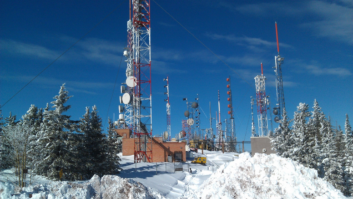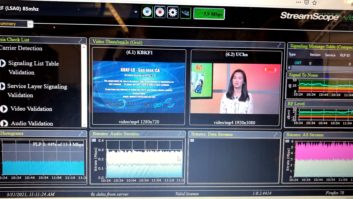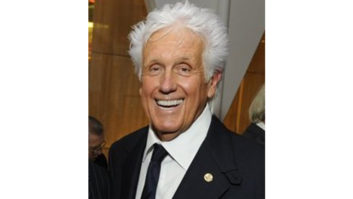I heard from a reader — let’s call him Jack — who sold a station in a small community recently. The buyer had assured him and others that he intended to keep the station just as local as it had been, “if not more so” — those exact words.
Among the factors in his decision to buy was the station’s excellent local reputation. On a wall in the lobby was a “business of the year” award presented by a community organization. During the weeks before the transfer of license, the buyer was introduced to many community leaders. All told him how much they appreciated the station’s local news, service and involvement.
The message — local, local, local — was unmistakable.
Unfortunately, according to seller Jack, what followed was a sharp reduction in local news. No more coverage of the borough council or school board. Weather now is downloaded automatically from somewhere off-site. There is no station presence at community events.
“A tornado warning was issued one evening a few weeks into the new owner’s tenure,” Jack told me. “It wasn’t aired — this in a town that lost several lives to a tornado some years ago.”
A fugitive cop-killer who had been at large in the area was captured one evening. “Were it not that the network reported the capture as a national story, it would not have aired on the station,” my source said.
Callers to a trivia contest on the morning show now are routed to voice mail. The station, in a prominent main street storefront, is locked and dark after the morning announcer is done for the day, unless one of the sales people happens to be in.
“The commercial schedule is generated elsewhere and downloaded into the automation system,” Jack continued. “There’s no paper log. If an advertiser calls to ask when his next spot will run, whoever is in the station — even his own sales person — is unable to tell him.”
Embarrassed
The seller says he and his wife still live in the community; they are flattered but also embarrassed when neighbors say, “We miss you so much, it’s just not the same any more.” Jack tries to avoid trashing the new owner: “We have a vested interest in his success. There is seller financing involved, and we’re to receive monthly checks for a number of years. We really had hoped that the new owner would do such a fine job of serving local interests that people would just slowly forget about us.”
Jack acknowledges that the station has a smooth, well-executed sound. But it doesn’t “sound like its hometown.” It could just as easily be five states away.
“The new owner isn’t stupid,” Jack points out. “He has owned other small stations. He’s plainly an intelligent man. He’s a technical whiz. He knows a lot about computers and automation. He can make those digital boxes do remarkable things, without regard to what’s outside that darkened show window.”
Jack told me he had a dream reminiscent of the famous Wolfman Jack scene in “American Graffiti.” In Jack’s version, a listener went to visit his local station, found the door unlocked and stepped into a darkened room. But instead of the Wolfman, he found only a laptop computer, the screen of which displayed the name of the song playing, the next liner to play, a note that the weather forecast had just been downloaded, etc.
“My sleeping mind didn’t need much originality to produce that dream,” he said. “Some variant of it is the reality at many ‘local’ stations these days.”
Jack’s lesson to us: It’s remarkable what modern technology can do. It can make our lives incredibly more efficient and enjoyable. It can generate great revenue. It also can produce a program flow sufficient to modulate the carrier without any meaningful local involvement, regardless of the FCC’s local studio rule. It can produce a smooth-sounding morning show that fails to relate to the interests and concerns of the listeners in the community of license. It can spit out a weather forecast unrelated to what listeners observe by looking out the window.
And, as Jack reminds us, it can ignore the hundred and one activities that serve as glue binding a community together.
Jack wanted us to know. Just because you can doesn’t mean you should.












